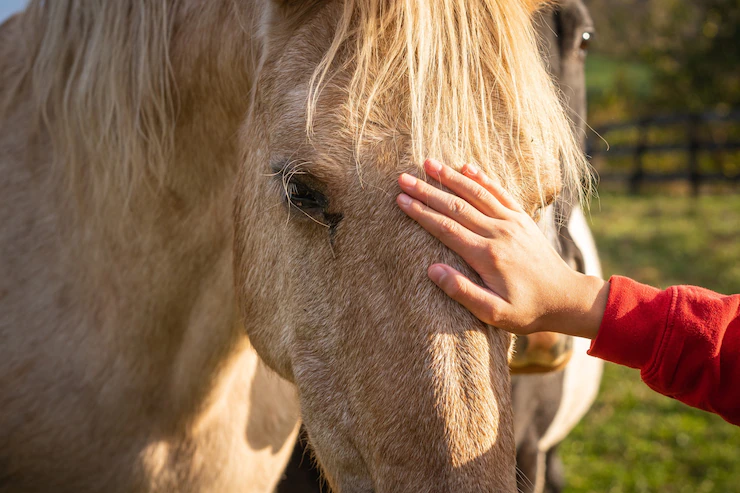
Horses necessitate substantial time, commitment, and emotional and financial investment. There is much to learn about caring for, riding, and teaching a new horse.
It can be difficult to determine which kind of food to purchase, when and whether it needs shoes, and how frequently to brush their manes and tails.
Providing the proper gear for your horses could also be difficult, considering that there’s a wide range of products in the market.
You may shop for complete horse accessories online in Australia; they have quality products ranging from rugs, accessories, and even health medicines, ensuring the best for your horse.
To ease some of the stress from providing for your first horse, here is a list of necessities you need as you create a stable and healthy relationship with your horses.
1. Horse Tack
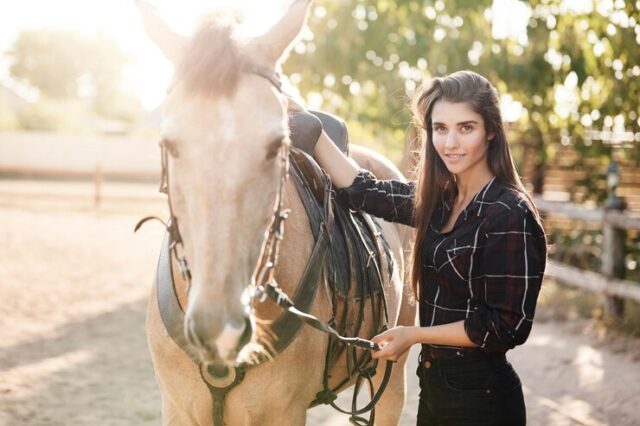
Saddle and Saddle Pad
Saddles come in a wide variety of sub-categories, but there are only two basic types: English and Western.
When shopping for a saddle, It’s critical to ensure that the saddle is properly sized for the horse and rider.
Girth
Several girth variations include plain, contoured, and stud guards in leather, nylon, and synthetic materials.
When shopping for girths, ask advice from your saddle fitter to know what is suited for your horse.
Bridle
A bridle is a tool for facilitating the connection between both the rider and the horse.
Harnesses are often made of either leather or a synthetic material like nylon and are divided into Western and English.
English bridle includes a headstall, cavesson, browband, bit, and reins.
A Western bridle comprises a headstall, bit, and reins.
Reins and Bit
Reins are used to leading and connect with the horse. Split, closed, and pull are the common type of reins.
On the other hand, bits are used to apply force to the horse’s mouth or head to teach the horse to react in a particular manner.
Bits typically come in two varieties: curb and snaffle.
Stirrup Leathers and Irons
The shaped metal ring that your foot rests in a while riding a horse is known as a stirrup iron.
They are connected to the leather stirrups, fastened to the saddle’s tree underneath the skirt.
Stirrup irons give your feet a steady place to ride your horse and a strong foundation of support when you are riding.
2. Food and Drink
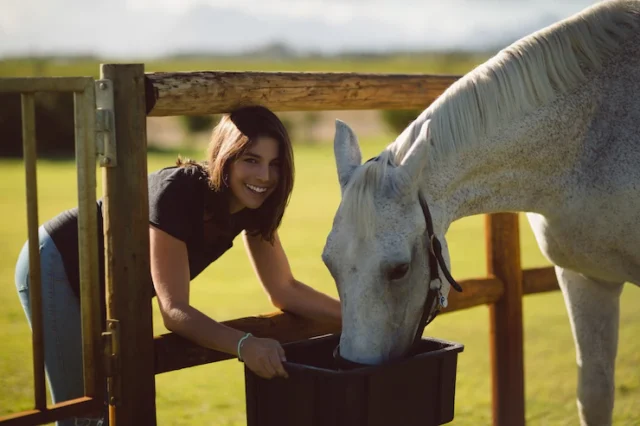
As a horse owner, you must take excellent care of your horse if you wish them the fullest and healthiest chance at life.
Appropriately fed horses live longer and healthier than those who don’t receive sufficient food or supplements.
To maintain a healthy physical condition, horses need access to a sufficient quantity of high-quality food and drink.
3. Grooming
Horses are prone to internal parasites, so they need to be dewormed periodically.
When it comes to when and how frequently you should deworm your horse each year, there are many varying opinions and beliefs.
Some horse owners believe you should do it twice a year, while others disagree.
Some horses have immunity to worms, while others have not. So it’s best to ask your veterinarian to perform a worm count test to determine how frequently you should deworm your horse.
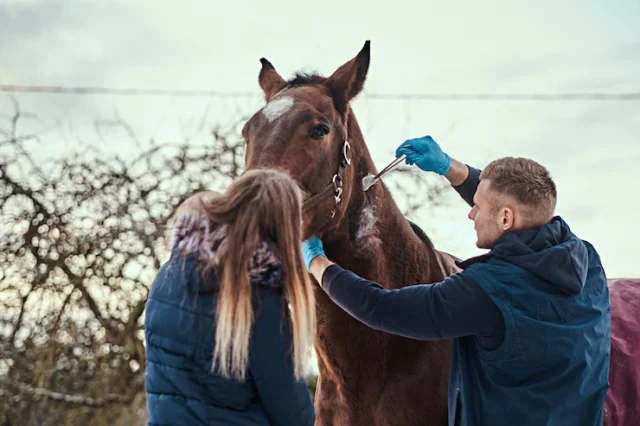
4. Veterinarian
There should be a specific veterinarian for your horse. They will frequently need urgent or special care.
Certain horses might need several drugs and other therapies, like acupuncture or preventative care, to stay healthy and strong.
You should have a budget for these treatments ahead of time to ensure that your horse will receive proper care from an expert.
5. Farrier
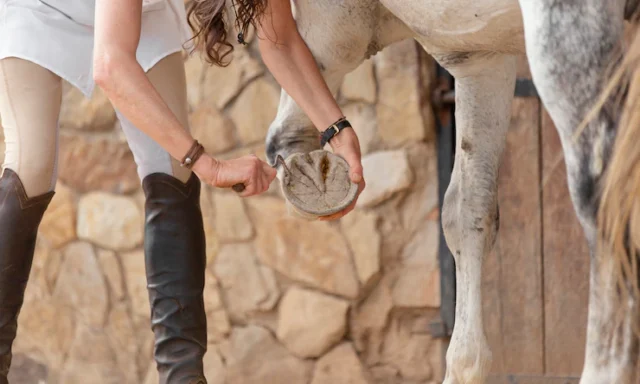
Your horse will need a regular farrier every six to eight weeks.
The cost varies depending on the sort of trim and footwear the horse needs.
Older horses may require special shoeing that is more expensive than standard shoeing.
6. Shelter
Horses require protection from the sun, wind, and rain.
Appropriate horse shelters have trees and a walk-in shed.
7. Feet Care
A fairer should trim your horse’s hooves every 6-8 weeks to avoid hooves breaking or growing excessively lengthy, making your horse uncomfortable.
You should also provide shoes if the horse is ridden upon a hard or bumpy surface.
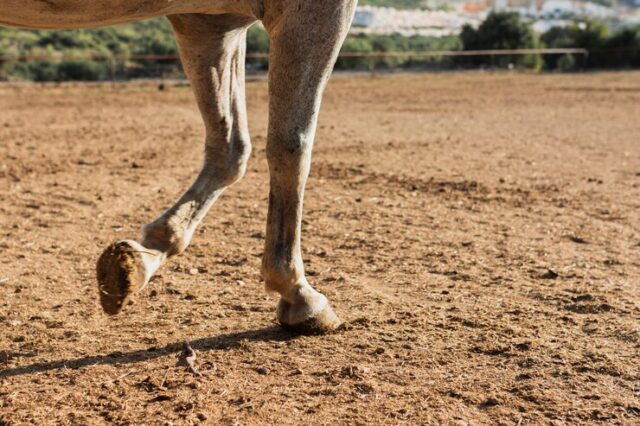
8. Teeth care
When your horse has been confined inside a paddock, a trained and skilled equine dentist must examine the horse’s teeth at least once per year.
Unchecked teeth could become sharper and cause oral wounds and pain.
Horses below the age of five and horses fed with grains need to have their teeth examined at least once each three to six months.
9. Deworm
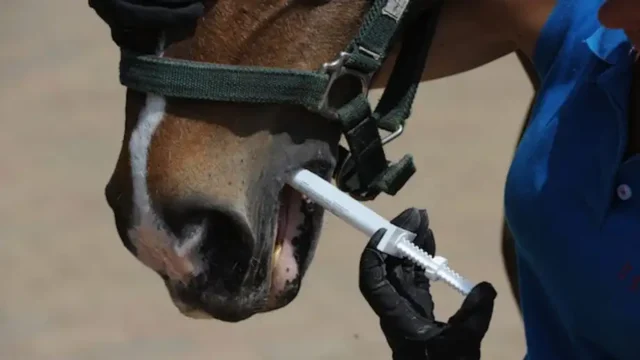
Horses are prone to internal parasites, so they must be dewormed regularly.
There are numerous ideas and beliefs regarding when and how frequently you should deworm your horse each year.
Many horse owners believe it should be done twice a year, while others disagree.
Some horses have immunity to worms, while some have not. Ask your veterinarian to perform a worm count test to determine how frequently you should deworm your horse.
10. Shot Schedule
Horses require specific vaccines yearly to keep them healthy.
When you acquire a new horse, you must determine when the horse was last vaccinated so that you can mark the next vaccination date on your calendar.
Some immunization will vary depending on your country. Check with your local veterinarian to find out what they advise.
11. Exercise
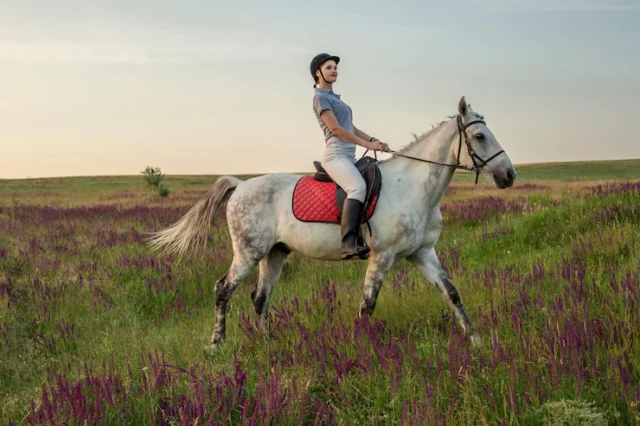
As a horse owner, you should not forget that horses were designed to be active, and you should not stall your horse for long periods.
Being sedentary can significantly impact a horse’s health; it reduces circulation and increases muscular tension, which can contribute to arthritis. Horses require some type of movement throughout the day to stay healthy.
Whether putting your horse out into the field or spending the time to exercise the animal, allowing your horse to exercise will improve their physical and emotional state.
12. Rest Day
If you intend to take your horse through a severe training session or ride for a couple of hours every day, keep in mind that your horse will require days off to sleep, recover, and adapt.
A horse who undergoes intensive training without rest could acquire catastrophic damage.
Making a riding schedule is the simplest approach to ensure your horse gets sufficient rest. Set aside some dates for riding and others for more relaxed leisure.
13. Fly Spray
Unfortunately, horses struggle with flies. Flies cause illness, and they are an annoyance and a potential hazard.
Flies can be greatly diminished if you make the surroundings around your horse less inviting by spraying your horse with a fly repellent.
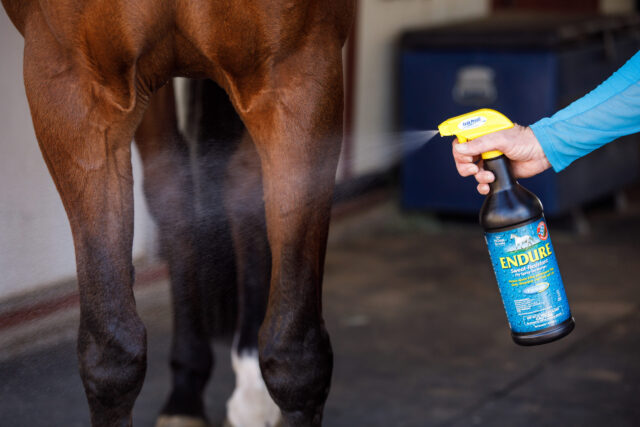
14. Horse Blanket
A horse blanket’s importance varies depending on your area’s temperature, how cool and wet it gets, and your particular horse.
You can decide whether to buy it or not.
However, having one would be preferable in an emergency.
15. First Aid Kit
Any horse owner should have a first aid box that is adequately stocked.
So you don’t have to spend time searching around drawers for what you’ll need if your horse is hurt.
You may purchase a pre-made kit or construct your first aid kit for horses.
For Your Horse’s Safety
Keeping a horse healthy is not easy. Insufficient care could greatly affect horse lives, and as a homeowner, you are responsible for ensuring your horses get the best care possible.
Aside from that, horse gear is also critical to their health, and you must choose the best gear possible if you want the best for your horse.









